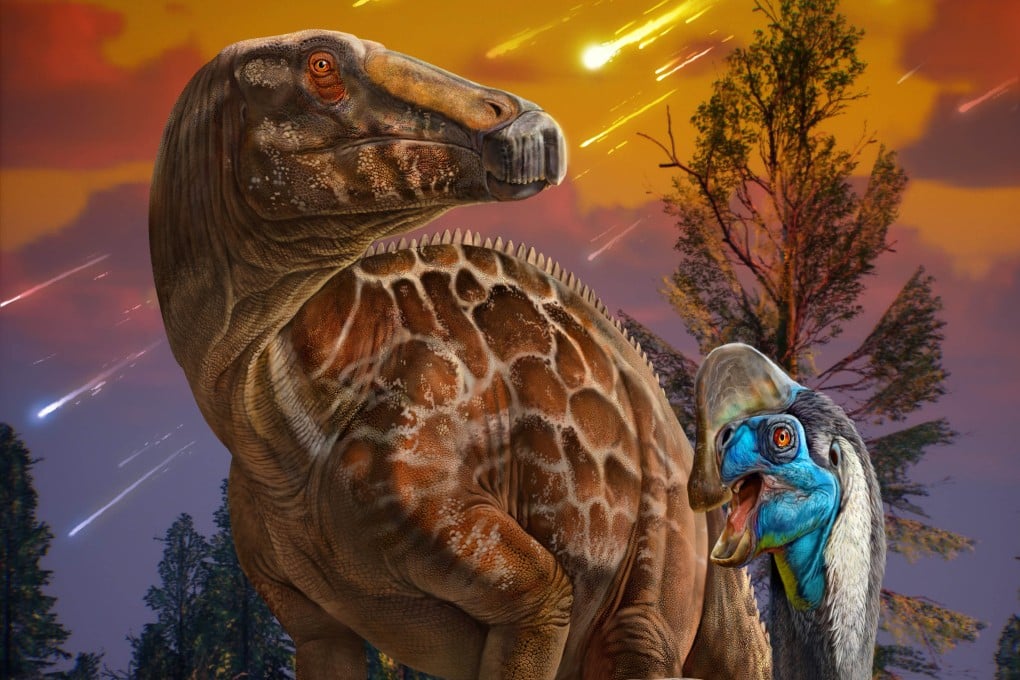Ancient eggshells show dinosaurs already dying out before asteroid strike, Chinese scientists say
- Team finds only three species of dinosaur eggs in rock layers from the last 2 million years of Cretaceous period, showing clear drop in biodiversity
- Volcanic eruptions in India or an asteroid strike in Mexico may have ended their reign but had dinosaurs previously lost ability to adapt to environment?

The team said the eggshells found across 150 metre-thick rock layers represented only three species of dinosaur eggs found across habitats from the final 2 million years of the Cretaceous period, showing a clear drop in biodiversity compared with older fossil records.
They said global climate fluctuations and the massive Deccan Traps volcanic eruptions in India led to shrinking diversity and few dinosaur lineages at the end of the Mesozoic Era, making the reptiles vulnerable to the mass extinction that coincided with a 10km-wide (6.2 mile) asteroid strike in Mexico.
Study lead author Wang Qiang, an associate researcher at the Institute of Vertebrate Palaeontology and Palaeoanthropology of the Chinese Academy of Sciences, said dinosaurs eventually lost the ability to adapt to, and recover from, sudden changes in the environment.
“Dinosaurs went extinct gradually over millions of years, instead of coming to an abrupt end from sudden disasters,” he said.

In an article published in the American peer-reviewed journal Proceedings of the National Academy of Sciences on Tuesday, the researchers wrote: “Our results support a long-term decline in global dinosaur biodiversity prior to 66 million years ago, which likely set the stage for the end-Cretaceous non-avian dinosaur mass extinction.
“The end-Cretaceous catastrophic events, such as the Deccan Traps and bolide impact, probably acted on an already vulnerable ecosystem and led to non-avian dinosaur extinction,” they wrote, referring to the eruptions in India that caused worldwide temperature swings and the asteroid that sparked a heatwave and soot in the air that reduced the amount of light reaching the Earth.
